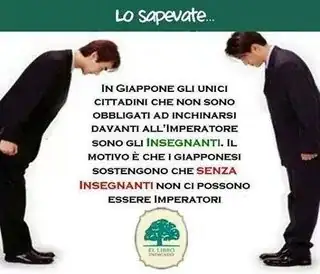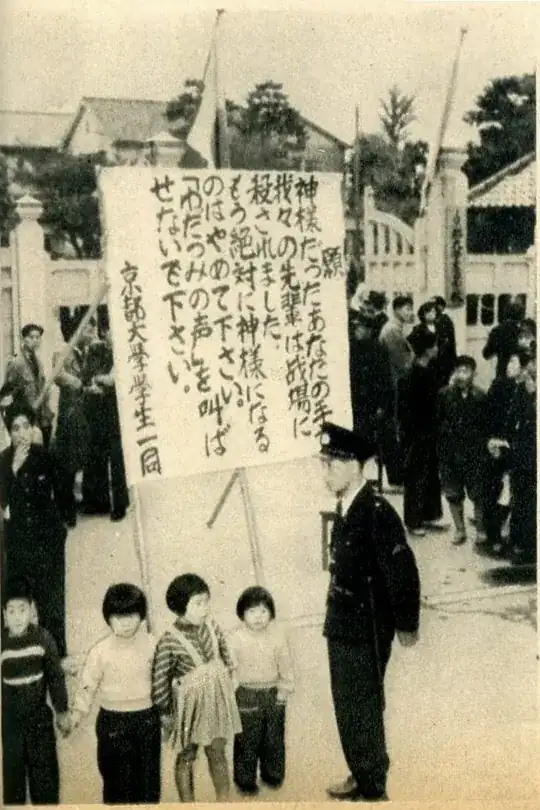Essentially the opposite of the claim is true.
According to Japan: Between Myth and Reality by Khoon Choy Lee, Singapore ambassador to Japan, writing of his experience as a teacher in Japanese occupied Malaysia at page 19:
My contact with Emperor Hirohito was more of a spiritual one. Every morning, students and teachers had to bow to the East, towards the direction of the Emperor's throne.
See also: A Japanese Village:
School-children, and teachers must bow to the Emperor's portrait on entering and leaving the auditorium containing it as well as on entering and leaving
Also Education in Japan, 1945-1963, page 24, says:
with great reverence and teachers and students alike would bow worshipfully before a portrait of the Emperor
Concerning an earlier time period, see Emperor of Japan: Meiji and His World, 1852-1912 which at page 440 which explains:
Uchimura Kanzo (1861-1930), a teacher in a high middle school, was asked (along with the other teachers and students) to bow before the imperial signature
At first Kanzo refused to bow, but he was eventually persuaded by the principal to bow.
Similarly, in The Church at Home and Abroad, Volume 12 (September 1892):
The Imperial edict, or the Emperor's picture, was hung up, and the students were required to bow before it. One of the teachers in the school preparatory to the University, on conscientious grounds, refrained from doing this. His action raised a storm of indignation, and he was dismissed
The source goes on to explain that a newspaper was forced to close (but reopened under a different name) because the editor discussed the issue.
In conclusion, teachers have been forced to bow to the emperor, pictures of the emperor and signature of the emperor.
Emperor Hirohito expected everyone to bow to him. After he died in 1989, Akihito became Emperor and bowing was no longer necessary for anyone, as explained in the 26 August 1990 New York Times article "Japan's Imperial Present".
Since becoming Emperor, he has established an informal style, stooping, for example, to shake hands with children and the handicapped, in contrast to his father, who expected everyone to bow to him.

